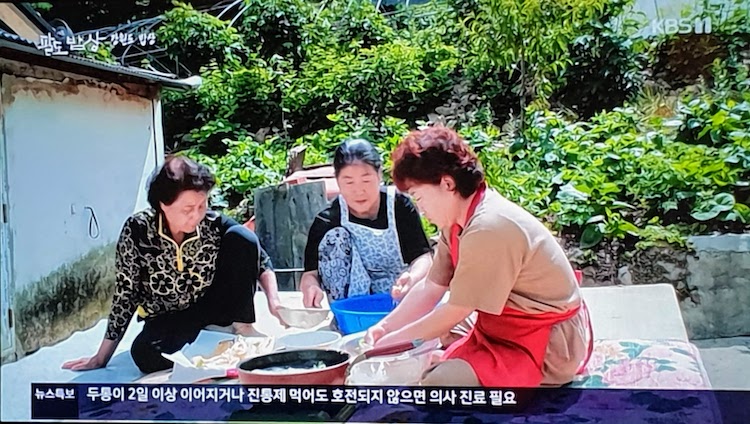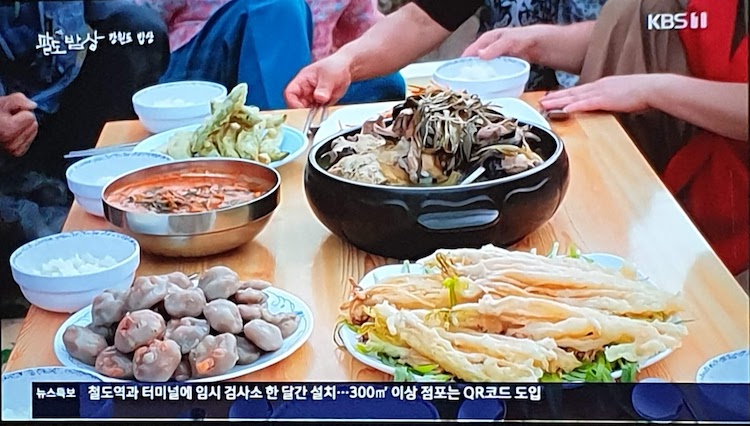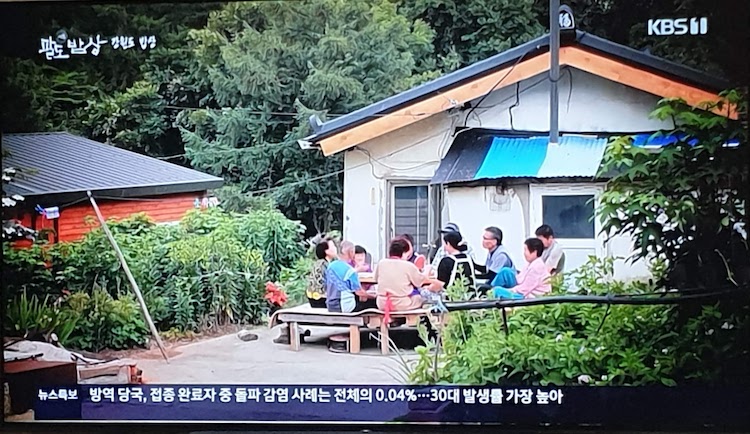I’m sitting here watching a “rural” show on a Korean channel. Rural in that it goes into the Korean countryside and fishing villages and talks to the people. It focuses on what they’re cooking and eating. So of course, it’s fascinating.

I watch these old ladies squatting around a fire in their courtyard, and they’re preparing fish that they’ve probably prepared just about every other day of their lives, and I’m thinking “they can do this in their sleep, fifty different ways.”
And I get this sense of community and interconnectedness out of it too. I can practically feel the knowledge and wisdom of what they’re saying and doing. And I know it’s not an easy life. They’re not ones to hit up McDonald’s much. Or even use the microwave a whole lot. They’re putting together what they have to eat regularly, like they’ve done for years.
When I meet new people here in Korea, I’ll ask where they’re from, and so often they answer “Seoul.” I love Seoul. It’s a great city. But it’s a city. I go there sometimes (but not lately of course), and I’m a bit overcome by the everything. Sure, I’ve got small-town roots, so maybe I don’t see the practicality of having too much. But I can’t help but think maybe that’s a better life for us than being packed in with the rest of the bustle. It’s convenient to be able to get just about anything you want anytime, but there’s something to be said for making do with what you’ve got too. If you know you can’t get it, you’re not overcome with worry trying. You live in a fishing village? Guess what’s for dinner. In the mountains? The same. But without the fish.
You could almost get a chuckle out of the move to buy locally-grown products. This is an excellent concept, but how much more local can you get then your backyard? And when that’s the case, you learn how to cook and can and keep the things you’ve got. And getting something special every so often is just that – special. I mean, what’s Christmas anymore when you can have it all whenever you want it?

When I was a young boy, my grandparents lived next door. They had a garden. It was big when I was small – now I wonder how it even fit in the space they had. But I remember things like the carrots especially. And I remember the hand plows my grandfather used to work it (one single-blade, one multiple-blade). It was all right there, and I know my grandmother knew how to put it up for the winter when she needed to (although I never stuck around for that part – I was just in her house for the graham crackers). Of course they went to the market – I don’t remember any chickens or a cow (well, I’m sure they must have had chickens at some time – maybe even a cow – they did have a barn) – but they also got by with what they had.
Don’t get the wrong idea here. Convenience is great. But it’s just that – a convenience. We can’t confuse that with necessity. In the event of catastrophic events that would take us back a hundred years or two, how many of us could really survive? I almost fear for our current state. The combination of helplessness when it comes to the basic needs of survival coupled with recent tendencies to resort to violence and claim one’s own rights over those of others has me thinking the apocalypse could truly be apocalyptical.
While youth clamors to get to the big city, they forget some of the things that are really important. Meanwhile, an older generation stays put and makes due. And with them, heaps of knowledge about how to really live. Knowledge that, sadly, dies out as they age.
So when I see these rural shows, I can’t help but think, “they get it.” More than any of us.

